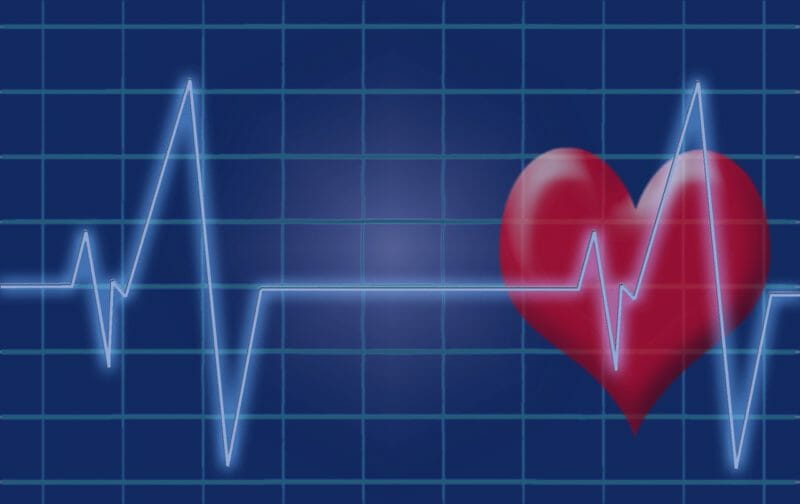While 7 out of 10 Americans acknowledge heart disease as the No. 1 killer of both men and women, a national survey finds that people still worry more about cancer (62 percent) than they do a heart attack (55 percent).
A staggering 62 percent of Americans failed the “Heart Attack IQ” quiz, proving a concerning lack of knowledge about heart disease, the risk factors and prevention.
The study was conducted by MDVIP and Ipsos.
“The healthcare community has made important strides in raising public awareness about heart disease, yet our research shows a significant gap in how much people understand about the disease and their own risk for a heart attack,” said Dr. Andrea Klemes, Chief Medical Officer of MDVIP. “Considering that at least 80 percent of cardiac events are preventable, primary care physicians are a first line of defense in helping prevent, and potentially reverse, the disease through more comprehensive risk assessment, better education and health coaching that together lead to long-term lifestyle changes in patients.”
The survey reveals many Americans are uncertain, if not ill-informed, about the risk factors for a heart attack and what increases a person’s odds for having one.
Most Americans (75 percent) don’t know that a heart attack happens when a blood clot forms over a plaque lesion in the arteries. Three-quarters of Americans (75 percent) are not aware that most heart attacks occur in people with normal cholesterol levels.
High levels of cholesterol encourage the buildup of fatty deposits called plaque in the arteries, causing them to harden and narrow. When the plaque becomes unstable and ruptures, a blood clot forms which leads to a heart attack. Inflammation in the arteries is the trigger for a cardiovascular event.
Only 14 percent of American adults have had their inflammatory markers checked within the last year, while more than half (54 percent) have had their cholesterol levels checked during the same period.
Another common misconception found in the survey is that all fat is bad:
- More than half of Americans (52 percent) falsely believe that people with heart disease should eat as little fat as possible, not taking into account the value of unsaturated fats in foods like salmon and nuts that can actually help reduce the risk of a heart attack.
- Americans also struggle with differentiating between bad fats. When presented a list of four foods (medium French fries, 3 oz. filet mignon, one scrambled egg, one cup of ice cream), only 9 percent correctly identified the cup of ice cream, which is the highest in saturated fat, as the worst for cholesterol.
Primary care physicians (PCPs) play a key role in heart disease education and prevention, yet less than half of Americans (42 percent) say they’ve actually discussed their heart health with their PCP. Similarly, only 42 percent have been coached by their PCP on specific lifestyle habits, including diet, exercise and meditation to help prevent or manage heart disease.
“People don’t always consider lifestyle a part of medicine, but it is a discipline today that is proven to prevent and even reverse or ‘undo’ multiple chronic conditions such as heart disease,” said Dr. Dean Ornish, founder and president of the non-profit Preventive Medicine Research Institute and best-selling author, with his latest book titled Undo It! “Changes to everyday choices regarding diet, exercise, stress management and relationships are simple, but require proper guidance and ongoing support. Primary care physicians like those in the MDVIP network, who make lifestyle coaching an integral part of preventive care and have more time to spend with their patients, can have a major impact on improving the heart health and overall well-being of their patients.”
Only 26 percent of women are aware that females have a lower chance of surviving a first heart attack compared to males. The survey also shows women lag behind men when it comes to heart disease knowledge and prevention.
- Only 31 percent of women (vs. 53 percent of men) have asked their primary care doctor for advice on how to manage or prevent heart disease.
- Only 55 percent of women (vs. 67 percent of men) say they are knowledgeable about the risk factors for heart disease.
- Only 43 percent of women (vs. 56 percent of men) consider themselves well-informed when it comes to the best screening methods for heart disease.
Dr. Klemes added, “Whether you’re male, female, in your 30s or 90s, heart disease doesn’t discriminate. This is why people need to partner with a physician who will go beyond the basics to provide a more complete picture of their risk and put together an action plan that proactively addresses it. Our outcome data on MDVIP members is black-and-white proof that when doctors actually have time to work closely with patients and employ more advanced testing, they can identify risk earlier, take more preventive action and keep them out of the hospital.”







